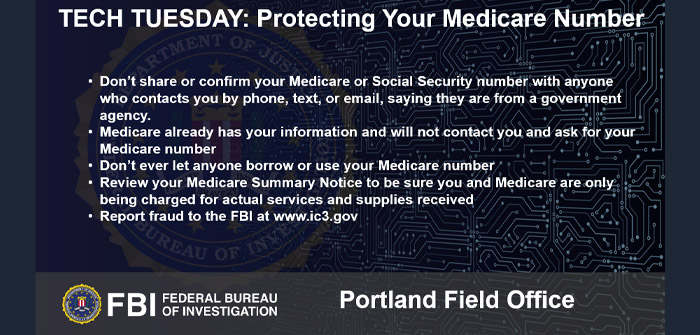(Graphic | Courtesy of Oregon FBI)
Most Americans have received an impersonation scam call where the caller says they are a member of law enforcement or a fake family member — according to the FTC in a recent consumer alert, impersonation scams are the most reported type of scam.
The scammers may not always ask for money, but they may ask for your personal information, including your Medicare number. If you have Medicare, you should protect your Medicare card and number like you would a credit card. Scammers can steal your identity by using your Medicare number, and this is becoming more and more common.
Here are some tips for protecting yourself from identity theft and healthcare fraud:
Don’t share or confirm your Medicare or Social Security number with anyone who contacts you by phone, text, or email, saying they are from a government agency. If you answer a call, hang up and call the phone number on your Medicare card or on the company’s or government agency’s website to verify the authenticity of the request.
Medicare already has your information and will not contact you and ask for your Medicare number.
Don’t ever let anyone borrow or use your Medicare number.
Review your Medicare Summary Notice (MSN) to be sure you and Medicare are only being charged for actual services and supplies received.
Additional information and resources:
Medicare.gov
consumer.ftc.gov/consumer-alerts/2022/06/protect-your-medicare-number-your-other-info-and-your-money
If you believe you are a victim of an online scam, you should report the incident to the FBI’s Internet Crime Complaint Center at ic3.gov or call your local FBI field office.





